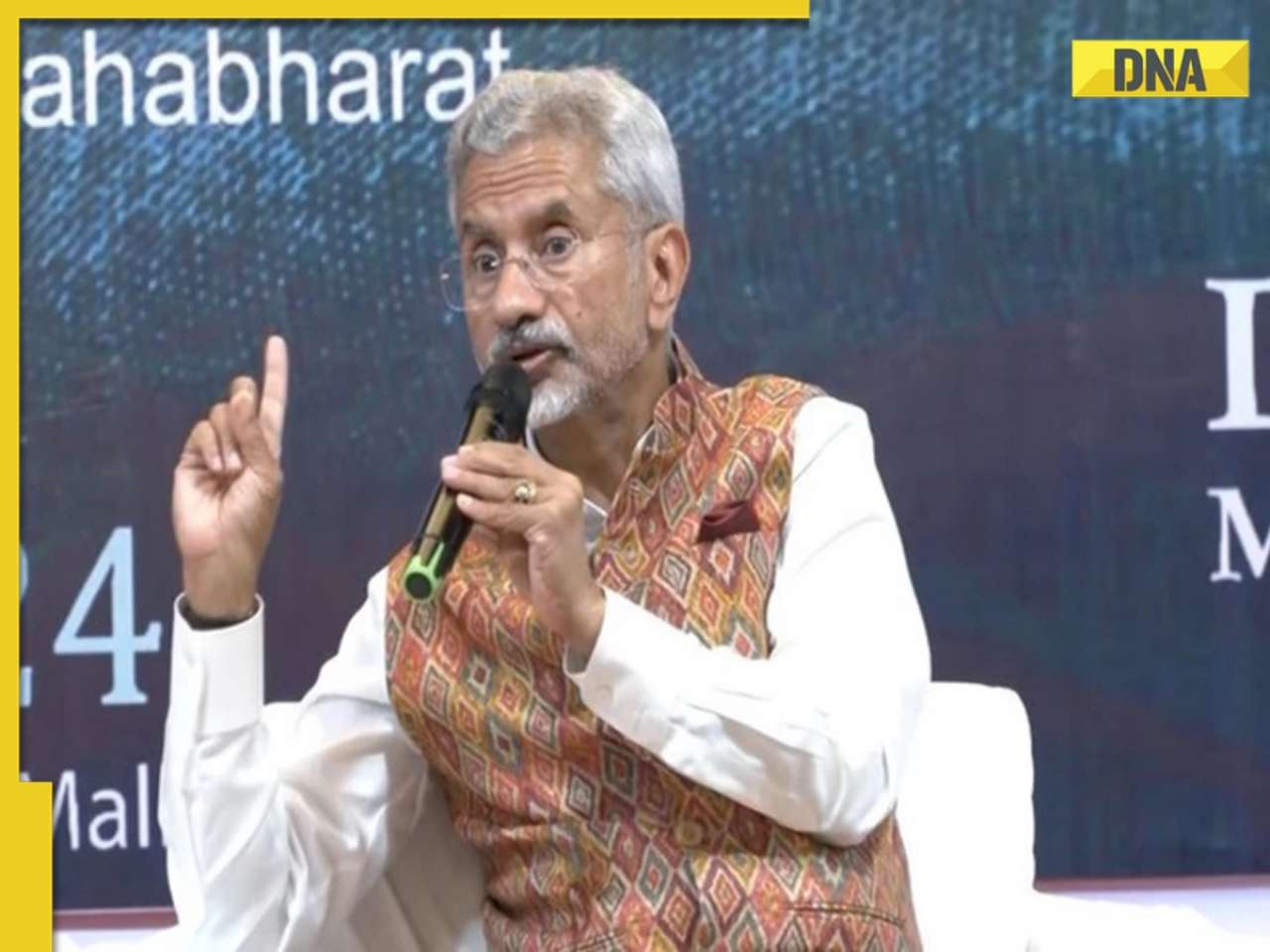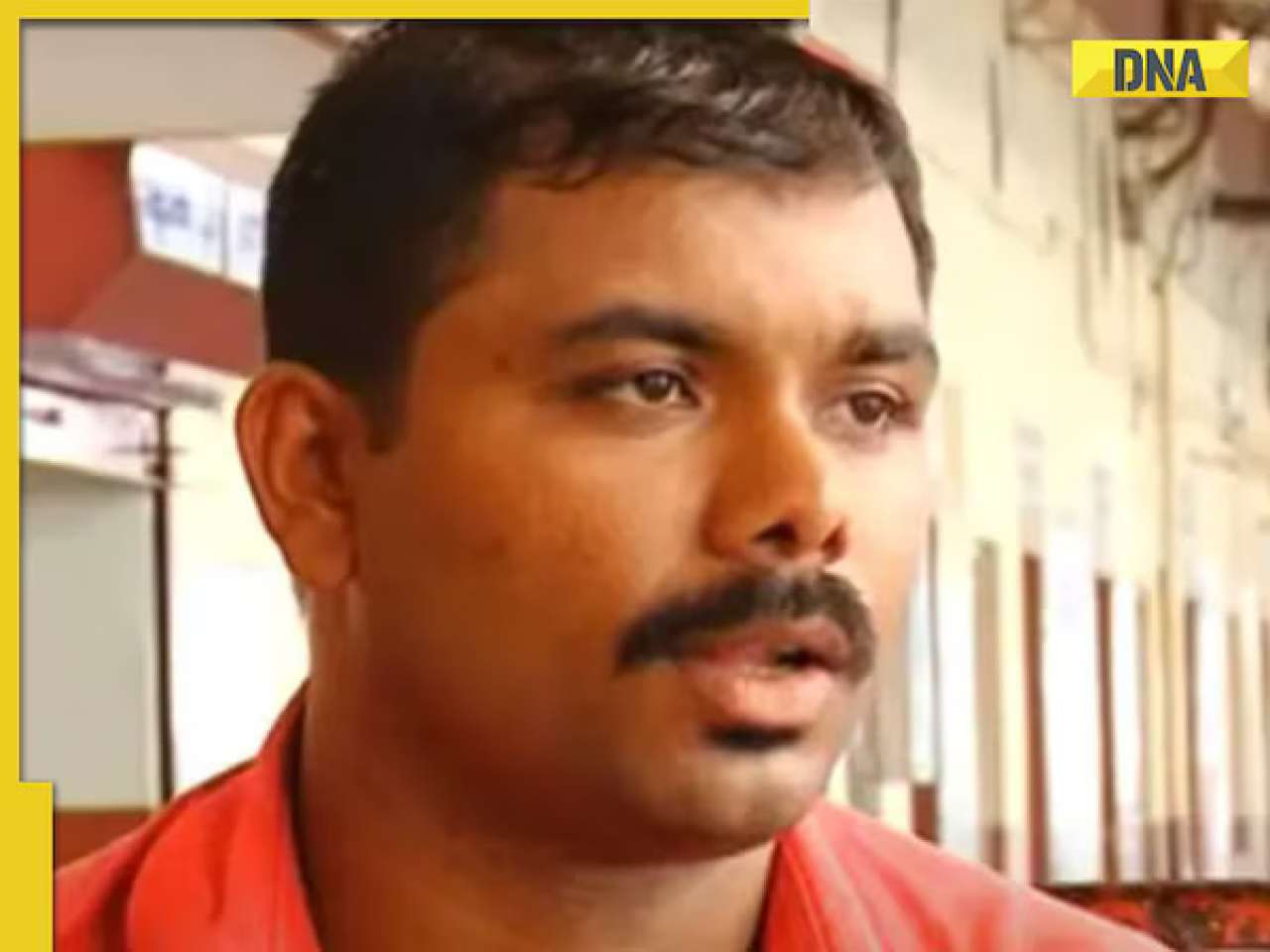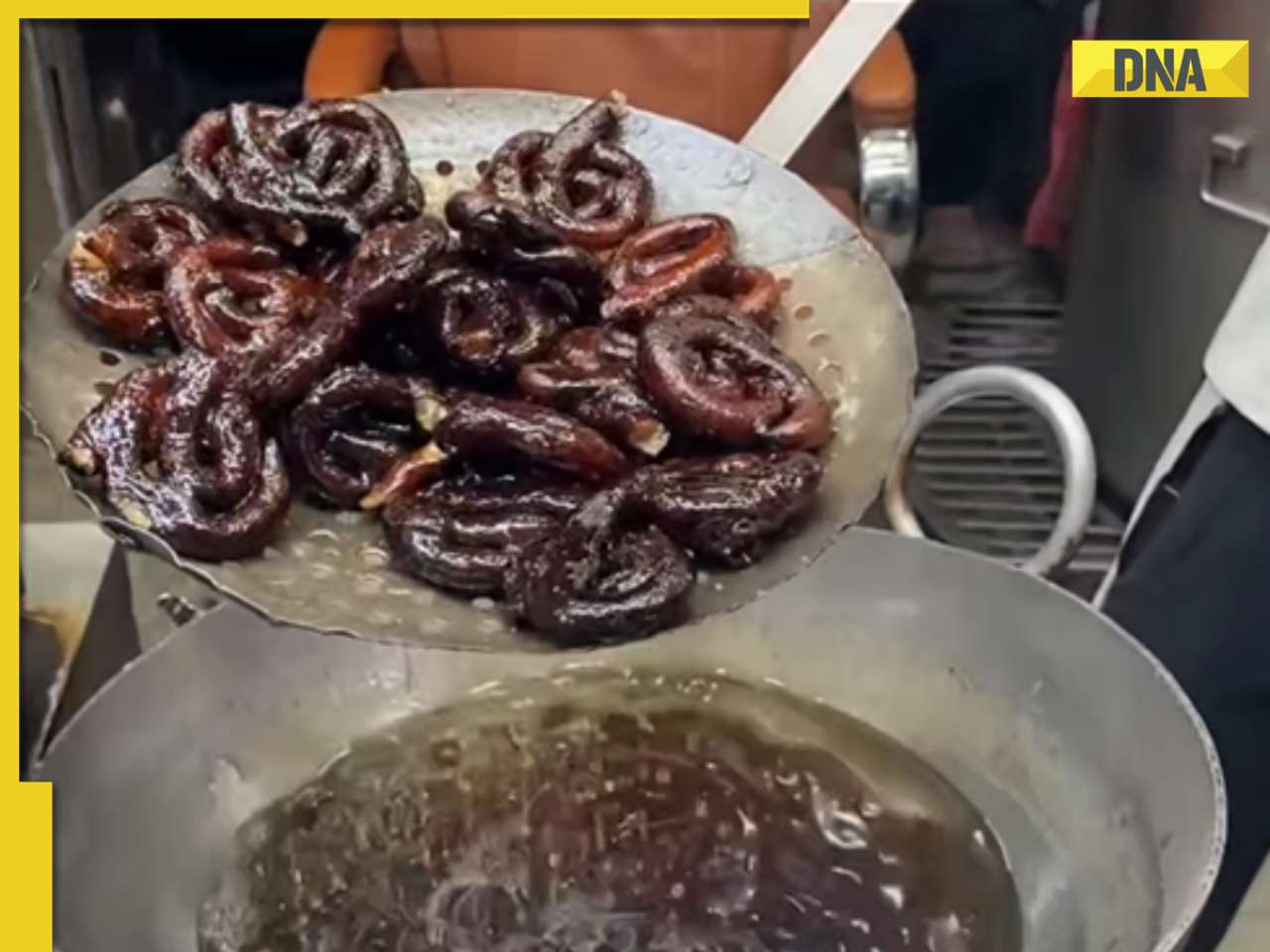For the Briton held in a cell on trumped-up murder charges, his unexpected escape proved to be surreal.
It was the moment he had been waiting for. But even in David Simpson's most feverish, malaria-wracked dreams, he could not have imagined quite how dramatic his exit from prison would be.
The 24-year-old Yorkshireman, behind bars since March in the Central African Republic (CAR) on trumped-up murder charges, was swept free in a wave of rioting, looting and mayhem. A raging crowd of hundreds stormed the prison, beat down the metal door and released all the inmates.
Mr Simpson, hearing the roar from the crowds, tried to barricade himself into his cell for safety, but machete-wielding looters charged into the room, stealing everything they could and forcing him to run for his life. In the melee in the courtyard he was pushed to the floor three times, beaten and robbed.
"I was a target," he said after his escape, bruised and battered from his ordeal. "They saw the white man and all went for me - men, women and children. A woman floored me with a punch to my jaw, and five men pinned me down as others tried to steal my clothes and shoes. Children were ripping at my trousers. It was absolute chaos and really terrifying."
Now safely ensconced in the CAR home of his Swedish boss Erik Mararv, who owns the hunting company which employed him as a pilot, Mr Simpson has swapped his flimsy mattress on the floor for soft sheets and a private shower - unimaginable luxury after enduring bucket showers with crowds of onlookers inside the prison.
On Thursday night, for the first time in four months, he sat down to dinner at a table - relishing pizza and a glass of wine instead of the usual cassava mash and meat stew. How magical to be on the breezy terrace of Mr Mararv's family home - a large former cinema, surrounded by lush gardens protected by a gaggle of "guard geese" - rather than in his concrete pen.
Unsurprisingly he is still reeling from the events of Thursday afternoon. The storm of punches rained down on him have left him unable to turn his head, having pulled a muscle in his neck. After the adrenalin wore off he realised just how aching his muscles were from the beatings. And the shock of the prison break has left him dazed. "In my head, I'm still in prison," he said.
"I can't quite come to terms with the fact I'm outside. But our situation is still in limbo - we haven't been formally freed, so I suppose this is a kind of house arrest. We are just waiting now to see what happens next."
And, in a place as chaotic and lawless as the CAR, that is anyone's guess. A vast wilderness bordering the Congo, the country has been rocked by a constant stream of coups and street protests since independence from France in 1960. Indeed, Thursday's prison break was started by a riot in the centre of the capital, Bangui, which spread to the jail.
Local people, angry at the government for charging a fee for entering the military and then refusing their applications, took to the streets to vent their anger, burning cars and attacking shops. A statue of President Francois Bozize was toppled from its perch and smashed into pieces as the riots spread across the city.
At that moment, around three miles from the centre of town in Ngarabara Prison, Mr Simpson was in his cell with three other local employees of the hunting firm. The government had arrested 13 staff members, including Mr Simpson and Mr Mararv, after they reported the discovery of 13 bodies in the remote east of the country.
"One man for each body," Mr Simpson had remarked drily, when The Sunday Telegraph visited him in prison last month. The other nine men were, at that moment, outside the prison - either being interviewed by the judge investigating their case, or released on "sick leave".
Initially they thought the detention would be brief - Mr Simpson had reported the massacre and taken the police to the murder site - in an area known for attacks by notorious rebel group the Lord's Resistance Army - and there was not a shred of evidence to suggest he had bound the 13 victims' limbs before hacking them to death with machetes.
With hindsight, I asked, would he have still reported the massacre?
"I had no other option," said Mr Simpson, who has lived in the country for two years. "Some of the victims were relations of my local staff, who were hysterical. You can't just brush off something like that."
But it was a decision which has cost him dearly. The open skies of the CAR - a country the size of France, but with scarcely any roads or large settlements - were exchanged for a small room in the country's main prison.
Behind the slimy, whitewashed walls of the fortress, originally built by the French in 1953, Mr Simpson kept his sanity by running laps of the courtyard, reading novels brought to him by the British consul in Cameroon, and translating for some of the prisoners who do not speak Sangho, the local dialect.
His brother Paul, 22, travelled from the family home in the North Yorkshire village of Gillamoor and brought him a football - which provided entertainment for a while, until the hassle of having it stolen and then sold back to him got too frustrating.
A sense of humour and close friendships with his African colleagues have helped - as has the stoicism with which his parents Peter and Vicky, who rear pheasants on the edge of the moors, have coped with the ordeal. His father jokingly referred to him as "the Beast of Bangui" and his brother mischievously told David not to hurry out of prison as all the girls in Yorkshire flocked to talk to Paul about the case. Mr Simpson acknowledged that his family struggled to understand what was going on in one of the poorest of all countries - a place crippled by a Byzantine legal system and one of the most corrupt governments in the world.
"My dad has hardly left Yorkshire, so it's not easy for them," he said. "And when I first arrived I'd never set foot in Africa. But I am used to it now, and understand how things work here. Although at times even I have been infuriated by it all."
Since the murders, a judge has been compiling reports on the case, and after a tortuously slow few months had on Tuesday begun the final interviews with the 13 men. The case seemed, at last, to be progressing and the men were daring to believe they could be acquitted.
But the barely-credible tale of rebel massacres, political corruption and life inside an African prison had yet more twists to come.
"It was around 1pm on Thursday, and we heard all this noise outside the prison. We weren't sure what was happening, but then saw that the gate had been forced open," said Mr Simpson.
"I quickly gave the other guys my laptop and mobile which they wrapped in sheets, as we knew everyone would be aiming for me. They got out fairly unscathed and slipped away, but I was just the focus of everyone's attention."
The more astute of the looters made their way to a wing of the prison known as The White House, which housed the political prisoners - inmates known to be far wealthier than the rest. Armed with sticks and machetes, they fell upon anything they could find. Others just surged into the cells in a frenzy of theft. The rioters were flooding into the prison and stealing anything they could get their hands on - light bulbs, electric wires, plastic bowls for food, chairs and mattresses.
"It just shows how poor this place is. In the UK our rioters steal televisions, whereas here they are all scrapping over a dirty prison sheet," he said. As he rushed into the open, the rioters pounced on him. Separated from his colleagues, he was hurled to the floor and had to fight his way through the mob.
"I was pretty scared. They all had machetes and knives. They were going crazy."
A group of eight soldiers watched from under the trees as the 670 inmates surged out - murderers, thieves, political enemies of the president and a large number of innocent people who had never been told why they were inside.
As he got to the gateway, a soldier saw Mr Simpson - a lone white face - and dragged him away from the crowds. He was ushered towards a cell on the ground floor of the prison, where he was locked in with two other inmates - a Chinese prisoner who spoke no English, French or Sangho, and a local man unable to walk.
"I didn't want to run away from the prison, as I didn't think escaping would help my cause," he said. "They made the three of us lie on the floor to avoid being seen and said we were being detained for our own safety, which is perhaps true.
"A larger group of soldiers arrived, and fired their guns into the air but it didn't seem to do much. The prison was totally empty - everyone had fled."
Just as he was wondering whether the day could get any more surreal, it did. The cell door opened and the investigating judge walked in to take him away. It wasn't an official release, said Mr Simpson, but just making sure he was safe.
Sitting in the back of the hunting company's jeep, the judge and Mr Simpson were driven to Mr Mararv's house - where they all cracked open a beer on the terrace.
"It was a bit odd," he said. "I suppose this is now house arrest. He was nice enough, and I was in too much of a daze to really think to ask him why we were still being held.
"When he interviewed me on Tuesday he said with a big grin on his face: 'You are a murderer! Ha ha ha!' and then added: 'No, I am joking. I know you are innocent'.
"So it seems it is only the paperwork to be completed before we are released."
Although he has his passport, he does not want to flee the country, wanting to retain his job upon his release and carry on living in the CAR. Mr Simpson will wait for his official acquittal before travelling to Yorkshire to see his family.
"I really hope now that it is just a matter of a few days until we are declared free. They really can't put us back in prison - I hope - as there is not much of it left.
"It's an amazing feeling to be almost free, even though it has come about in a way that is crazy - even for Central Africa."
![submenu-img]() Meet IIT-JEE topper with AIR 1, son of government school teachers, he went on to pursue...
Meet IIT-JEE topper with AIR 1, son of government school teachers, he went on to pursue...![submenu-img]() Salman Khan house firing case: One more Lawrence Bishnoi gang member arrested by Mumbai Police
Salman Khan house firing case: One more Lawrence Bishnoi gang member arrested by Mumbai Police ![submenu-img]() Mukesh Ambani to host Anant-Radhika's second pre-wedding function: Trip to start from Italy with 800 guests and end in..
Mukesh Ambani to host Anant-Radhika's second pre-wedding function: Trip to start from Italy with 800 guests and end in..![submenu-img]() Driver caught on camera running over female toll plaza staff on Delhi-Meerut expressway, watch video
Driver caught on camera running over female toll plaza staff on Delhi-Meerut expressway, watch video![submenu-img]() 'If you come and do something here...': EAM S Jaishankar on India's 'message' against terrorism
'If you come and do something here...': EAM S Jaishankar on India's 'message' against terrorism![submenu-img]() Meet IIT-JEE topper with AIR 1, son of government school teachers, he went on to pursue...
Meet IIT-JEE topper with AIR 1, son of government school teachers, he went on to pursue...![submenu-img]() TN 11th Result 2024: TNDGE Tamil Nadu HSE (+1) result declared, direct link here
TN 11th Result 2024: TNDGE Tamil Nadu HSE (+1) result declared, direct link here![submenu-img]() Meet doctor who cracked UPSC exam with AIR 9 but didn’t became IAS due to…
Meet doctor who cracked UPSC exam with AIR 9 but didn’t became IAS due to…![submenu-img]() TN 11th Result 2024 to be declared today; know how to check
TN 11th Result 2024 to be declared today; know how to check![submenu-img]() Meet man who worked as coolie, studied from railway's WiFi, then cracked UPSC exam to become IAS, secured AIR...
Meet man who worked as coolie, studied from railway's WiFi, then cracked UPSC exam to become IAS, secured AIR...![submenu-img]() DNA Verified: Is CAA an anti-Muslim law? Centre terms news report as 'misleading'
DNA Verified: Is CAA an anti-Muslim law? Centre terms news report as 'misleading'![submenu-img]() DNA Verified: Lok Sabha Elections 2024 to be held on April 19? Know truth behind viral message
DNA Verified: Lok Sabha Elections 2024 to be held on April 19? Know truth behind viral message![submenu-img]() DNA Verified: Modi govt giving students free laptops under 'One Student One Laptop' scheme? Know truth here
DNA Verified: Modi govt giving students free laptops under 'One Student One Laptop' scheme? Know truth here![submenu-img]() DNA Verified: Shah Rukh Khan denies reports of his role in release of India's naval officers from Qatar
DNA Verified: Shah Rukh Khan denies reports of his role in release of India's naval officers from Qatar![submenu-img]() DNA Verified: Is govt providing Rs 1.6 lakh benefit to girls under PM Ladli Laxmi Yojana? Know truth
DNA Verified: Is govt providing Rs 1.6 lakh benefit to girls under PM Ladli Laxmi Yojana? Know truth![submenu-img]() Remember Harsh Lunia? Just Mohabbat child star, here's how former actor looks now, his wife is Bollywood's popular...
Remember Harsh Lunia? Just Mohabbat child star, here's how former actor looks now, his wife is Bollywood's popular...![submenu-img]() Mother's Day 2024: Bollywood supermoms who balance motherhood, acting, and run multi-crore businesses
Mother's Day 2024: Bollywood supermoms who balance motherhood, acting, and run multi-crore businesses![submenu-img]() Rocky Aur Rani's Golu aka Anjali Anand shocks fans with drastic weight loss without gym, says fitness secret is...
Rocky Aur Rani's Golu aka Anjali Anand shocks fans with drastic weight loss without gym, says fitness secret is...![submenu-img]() In pics: Ram Charan gets mobbed by fans during his visit to Pithapuram for ‘indirect campaign’ for uncle Pawan Kalyan
In pics: Ram Charan gets mobbed by fans during his visit to Pithapuram for ‘indirect campaign’ for uncle Pawan Kalyan![submenu-img]() Streaming This Week: Yodha, Aavesham, Murder In Mahim, Undekhi season 3, latest OTT releases to binge-watch
Streaming This Week: Yodha, Aavesham, Murder In Mahim, Undekhi season 3, latest OTT releases to binge-watch![submenu-img]() Haryana Political Crisis: Will 3 independent MLAs support withdrawal impact the present Nayab Saini led-BJP government?
Haryana Political Crisis: Will 3 independent MLAs support withdrawal impact the present Nayab Saini led-BJP government?![submenu-img]() DNA Explainer: Why Harvey Weinstein's rape conviction was overturned, will beleaguered Hollywood mogul get out of jail?
DNA Explainer: Why Harvey Weinstein's rape conviction was overturned, will beleaguered Hollywood mogul get out of jail?![submenu-img]() What is inheritance tax?
What is inheritance tax?![submenu-img]() DNA Explainer: What is cloud seeding which is blamed for wreaking havoc in Dubai?
DNA Explainer: What is cloud seeding which is blamed for wreaking havoc in Dubai?![submenu-img]() DNA Explainer: What is Israel's Arrow-3 defence system used to intercept Iran's missile attack?
DNA Explainer: What is Israel's Arrow-3 defence system used to intercept Iran's missile attack?![submenu-img]() Salman Khan house firing case: One more Lawrence Bishnoi gang member arrested by Mumbai Police
Salman Khan house firing case: One more Lawrence Bishnoi gang member arrested by Mumbai Police ![submenu-img]() Meet actress, who got rejected for her looks, had no hit for 15 years; later beat Alia, Deepika, Katrina at box office
Meet actress, who got rejected for her looks, had no hit for 15 years; later beat Alia, Deepika, Katrina at box office![submenu-img]() Abdu Rozik breaks silence on his wedding announcement being called ‘publicity stunt’: ‘The whole world is…’
Abdu Rozik breaks silence on his wedding announcement being called ‘publicity stunt’: ‘The whole world is…’![submenu-img]() Meet actress who made debut with Salman Khan, had super flop career, then got TB, now lives in chawl, runs..
Meet actress who made debut with Salman Khan, had super flop career, then got TB, now lives in chawl, runs..![submenu-img]() Meet actress who worked with Naseeruddin Shah, sister of popular models, is now getting trolled on social media for..
Meet actress who worked with Naseeruddin Shah, sister of popular models, is now getting trolled on social media for..![submenu-img]() Driver caught on camera running over female toll plaza staff on Delhi-Meerut expressway, watch video
Driver caught on camera running over female toll plaza staff on Delhi-Meerut expressway, watch video![submenu-img]() Delhi man takes 200 flights in 110 days, steals lakhs worth of jewelry from passengers
Delhi man takes 200 flights in 110 days, steals lakhs worth of jewelry from passengers![submenu-img]() Viral video: Man makes paratha with 'diesel', internet reacts
Viral video: Man makes paratha with 'diesel', internet reacts![submenu-img]() Viral video of 'black jalebi' leaves internet in shock; netizens say 'hey bhagwan...'
Viral video of 'black jalebi' leaves internet in shock; netizens say 'hey bhagwan...'![submenu-img]() Real-life Bambi and Thumper? Adorable deer and rabbit video melts hearts online
Real-life Bambi and Thumper? Adorable deer and rabbit video melts hearts online





















































)
)
)
)
)
)